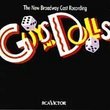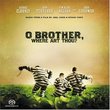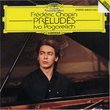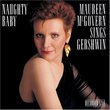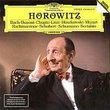| All Artists: Luigi Cherubini, Giuseppe Verdi, Riccardo Muti, Agnes Baltsa, Philharmonia Orchestra of London, Renata Scotto, Veriano Luchetti Title: Verdi: Requiem Mass; Cherubini: Requiem in C minor Members Wishing: 0 Total Copies: 0 Label: EMI Classics Release Date: 2/15/2005 Genre: Classical Styles: Opera & Classical Vocal, Historical Periods, Classical (c.1770-1830), Early Music, Symphonies Number of Discs: 2 SwapaCD Credits: 2 UPC: 724358623925 |
Search - Luigi Cherubini, Giuseppe Verdi, Riccardo Muti :: Verdi: Requiem Mass; Cherubini: Requiem in C minor
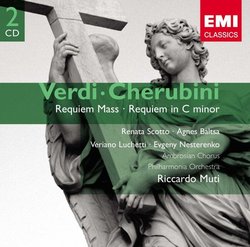 | Luigi Cherubini, Giuseppe Verdi, Riccardo Muti Verdi: Requiem Mass; Cherubini: Requiem in C minor Genre: Classical
|
Larger Image |
CD DetailsSimilarly Requested CDs
|
CD ReviewsTheatrical Verdi, ravishing Cherubini pyramidcvv | Western US | 04/20/2007 (5 out of 5 stars) "Listeners may be familiar with Riccardo Muti's 1987 La Scala recording of the Verdi Requiem featuring Studer, Zajic, Pavarotti, and Ramey (a wonderful album but a bit pricey). This earlier recording (June 1979) with the British is, fortunately or unfortunately, quite a different rendition. Muti's 1987 recording featured brilliant but well-disciplined singing. In this 1979 album, however, the discipline seems to have been left outside the recording studio. Words are grossly mispronounced, soloists are often a bit flat, and some of the vocalizing is uncomfortably forced. There is also a lot of use of ritards that sometimes sound overdone. But what made up for these drawbacks - and why I really LOVE this CD! - was the no-holds-barred theatricality. If you want a performance that is every bit as operatic as Verdi never wanted it to be, if you want every human emotion front and center, if you want a reading that couldn't care less about all those vocal niceties that music teachers charge so much to teach - well, here it is! The CD fools you at first. The opening Requiem chorus is barely audible, as is often the case. But suddenly you get punched in the face with the angriest, most violent "Te decet" basses you've ever heard. Forget the usual hymn-like treatment this passage normally gets. These hymnists are carrying sledgehammers. When the four soloists enter for the Kyrie, they leave no doubt that this really is going to be Verdi's "greatest opera." I have never, ever heard the Kyrie opening with such prima donna bombast. Veriano Luchetti had recorded the Verdi Requiem just two years earlier with Georg Solti and Leontyne Price. He was theatrical then, and still is. It's a real pleasure to hear him go full voice in places like Quid sum miser and Hostias. Agnes Baltsa would later record a marvelous Verdi Requiem with Herbert von Karajan (1984). Her big, powerful voice still rings with Muti. Evgeny Nesterenko is a star of the Russian opera world. In 1979, he was no doubt the Jerome Hines of the USSR. Of all the Verdi Requiem basses I've heard, Nesterenko is one of my favorites. His pronunciation will make purists cringe, though, and half the time he sounds like he's singing through his nose. But his monumentally deep bass sound and swooping vocal theatrics are so much fun to listen to! While all of the soloists did their part to maximize the drama, I think Renato Scotto gets first prize. Her Recordare is the weepiest I've ever heard, with lots of pop-music style inhaling to add to the emotion. In the Lacrymosa, you can almost see the tears coming down; you'd think you were watching the final scene of Madama Butterfly. In the Libera Me, she sounds frightfully angry, like she's ready to punch God in the face. Scotto has a huge voice with a bit of a wobble; she is recorded extremely well here. The Ambrosian Chorus, like the La Scala Opera Chorus several years later, had their hands full with Muti's lightning-fast tempos. Practically all the choral highlights (Dies Irae, Sanctus, Libera Me fugue) are done at frightening speeds which this chorus handles with great control. The sopranos are strangely over-miked at times: during the Libera Me fugue, their long sustained notes were distractingly loud and detracted from the main melody line. The Philharmonia Orchestra does well, but even they can only do so much. Muti conducts the Dies Irae so quickly, that the strings literally have to slow down ever so slightly so they can negotiate the virtuosic runs. The brass sound great throughout, but sometimes they are over-miked to the point where they drown out the chorus. Luigi Cherubini (1760 - 1842) wrote two requiems. The first, the Requiem in C Minor, was written in 1816 in France. If you've never heard a requiem that has no soloists, I strongly recommend this performance by Muti, the Ambrosian Chorus and the Philharmonia Orchestra (recorded July 1980, London). Cherubini was a contemporary of Mozart's, so comparisons are inevitable. Mozart never came close to finishing his requiem; Cherubini's score is complete from cover to cover. Personally, I was totally enchanted with this setting and am at a loss as to its infrequent recordings and performances. The Cherubini Requiem lasts 48 minutes. The opening Introitus and Kyrie were subdued and very moving, quite unlike Verdi's version. The Dies Irae was a powerful statement, proving that a good chorus and orchestra are all you need to depict Judgment Day. The Offertorium, at 16'33", was the longest movement. It features a heavenly setting of the phrase "sed signifer sanctus Michael" and a rousing setting of "Quam olim Abrahae" that must surely have lifted the audiences off their chairs. The Sanctus is short (only 1'20") but is overwhelming in its majestic sweep. The requiem finishes with a dramatic setting of the Agnus Dei that might surprise some modern ears. The Ambrosian Chorus makes the most of this exhilirating score; they are a joy to listen to. Muti and the Philharmonia seem to have put the Verdi behind them, and have formed a satisfying partnership that makes this precious music shine. No texts or translations. This 2004 album was released earlier in 1996. Highly recommended." All-out operatic, no holds barred Santa Fe Listener | Santa Fe, NM USA | 09/26/2006 (3 out of 5 stars) "On its first CD release The Gramophone's reviewer ranked Muti's first Verdi Requiem, from 1979, as among the top ten ever recorded. but in the LP era some critics found this performance so compelling that it was ranked No. 1 on many lists. In retrospect one may ask: Where did such exaggerated praise come from? Because to my ears Muti is blunt, coarse and even assualtive in his approach.
First among its virutes, the professional Philharmonia chorus sounds superb, singing with wonderful unity and musicality (though not with Verdian fervor). All of the soloists are exemplary except for the aging Scotto--she was the greatest artist among them but not the spinto-dramatic soprano required here, or the alternative lyric soprano one sometimes hears (e.g., Schwarzkopf). More generlaly, this was a hot shot's Requiem, eschewing spirituality for raw power and impact. Muti's Dies Irae and Sanctus were exhiliratingly fast. Memories of the fiery Toscanini were recalled. Now the Dies Irae seems like a pardoy as it races past. To tell the truth, the one thing that riveted my attention, despsite the wobble in her voice, was Scotto's tragic, almost wild solo singing. Muti's second try in the Nineties delivered a tamer reading, but this one can stand as a tribute to his early promise as Toscanini's all-too-brief successor." |

 Track Listings (15) - Disc #1
Track Listings (15) - Disc #1